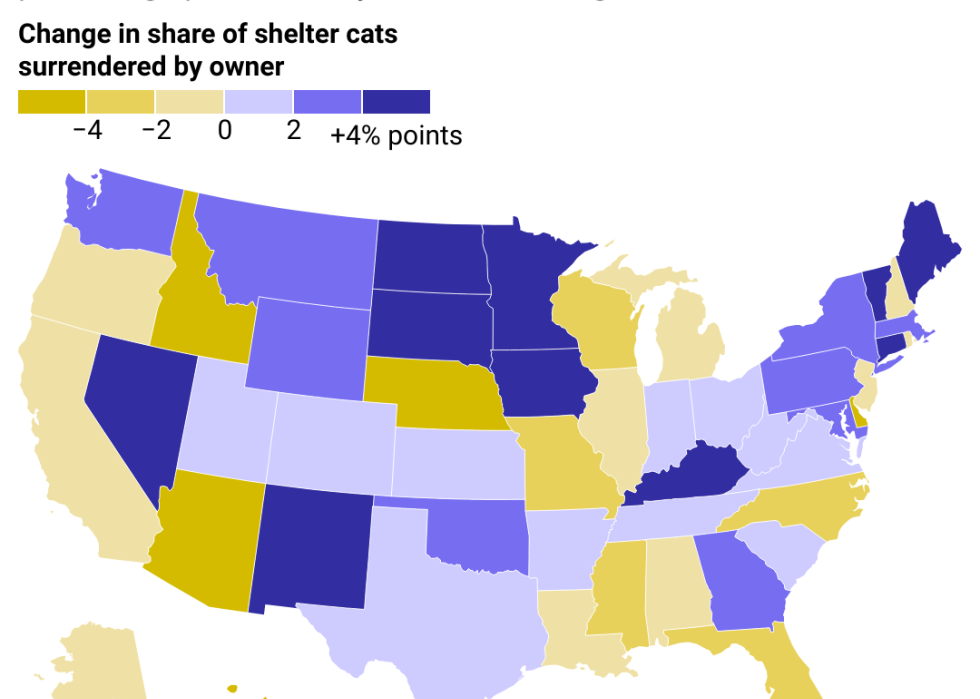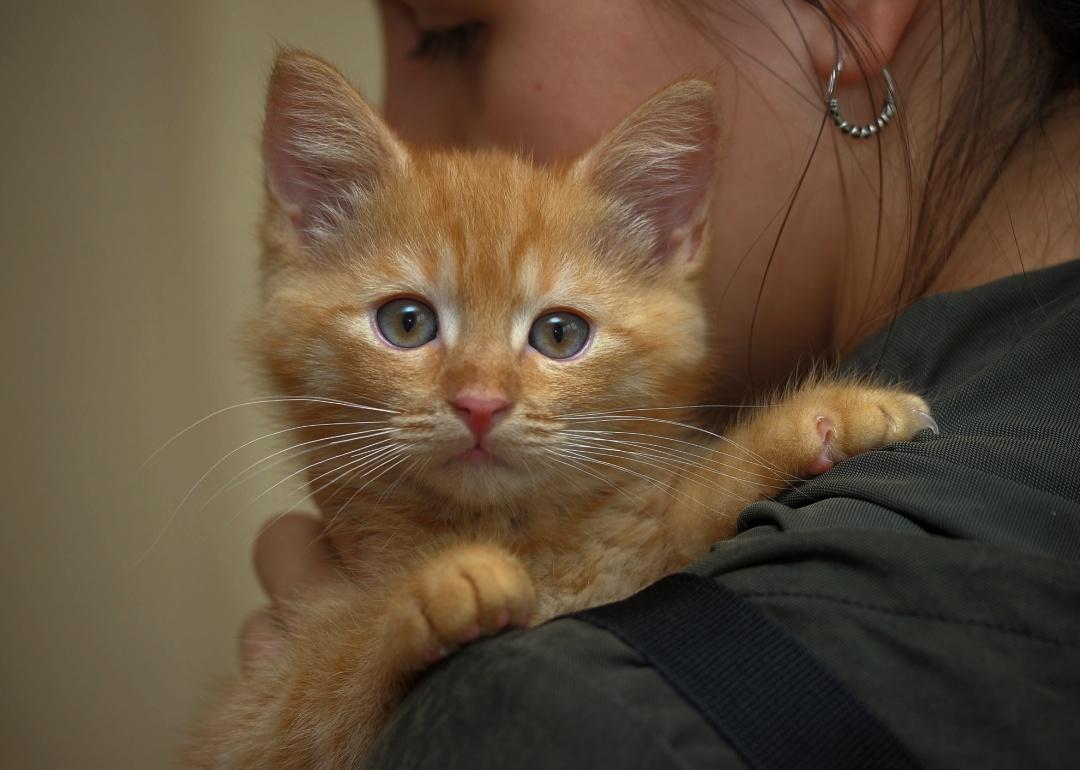Fair-weather pets: These states have seen the biggest change in cats surrendered to shelters

In some states, high surrender rates correlated with unemployment and poverty rates. For example, Nevada had the highest unemployment rate in the country at 5.4% during the third quarter of 2024. The surrender rate in the Silver State rose 5.8% between 2021 and 2023, making it one of the highest in the nation. New Mexico also had a higher unemployment rate during this same period than many other states, at 3.7%, and had a 5.6% surrender rate. Both New Mexico and Nevada also had a fairly high ratio of people living below the poverty line.
North Dakota and South Dakota both have exceedingly high cat surrender rates, at 17.6% and 15.5%, respectively. Although the Dakotas also have plummeting employment rates, the increase in surrenders may be due to multiple factors. The Animal Legal Defense Fund ranked North Dakota as the worst state for animal protection laws, according to the 2023 U.S. State Animal Protection Laws Ranking Report. The uptick in surrendered animals could also be due to a "COVID-19 kickback," with people who adopted pets during the pandemic now unable to care for their companions, according to the Central Dakota Humane Society.
The surge in pet intakes in South Dakota shelters could be due to "a mix of overpopulation of animals from breeders in 2020 when demand for pets was high, and a higher number of surrenders due to rising costs to care for pets," Rescue Network's South Dakota events coordinator, Lexa Rahn, told Dakota News Now.

Those in the unfortunate situation of needing to surrender a pet may feel shame, but it is often the last resort. Still, it's almost always an incredibly painful decision. Anyone who has ever dealt with the death of a family pet knows it's a devastating loss; surrendering a living pet can be just as difficult.
Those who need to surrender or rehome a furry friend should start the process as early as possible, as it can take weeks or more to find the right placement. Having them spayed or neutered and up-to-date on vaccinations is also beneficial.
For help with rehoming, spread the word with family and friends or on local community boards, and consider using the Adopt-A-Pet rehoming tool to find a new family for a pet.
If surrendering a pet is the only option, contact the nearest Humane Society, ASPCA, or animal shelter and ask them how to initiate the process. Some shelters have begun requiring surrender appointments. Book in advance, and be sure to bring vaccination records and any other important health information. Note that while some facilities may require a surrender fee to help cover the initial costs of intake, you can almost always find a group, typically a local Humane Society chapter, willing to take your pet free of charge.
Story editing by Alizah Salario. Additional editing by Elisa Huang. Copy editing by Kristen Wegrzyn. Photo selection by Ania Antecka.
